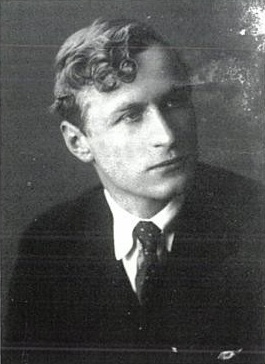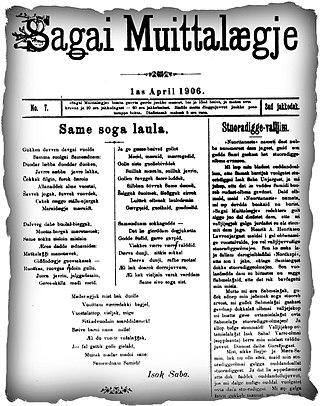Related Research Articles
The Progress Party, is a political party in Norway. It is generally positioned to the right of the Conservative Party, and is considered the most right-wing party to be represented in parliament. The FrP has traditionally self-identified as classical-liberal and as a libertarian party. It is often described as right-wing populist, which has been disputed in public discourse, and has been described by various academics as far-right. By 2020, the party attained a growing national conservative faction. After the 2017 parliamentary election, it was Norway's third largest political party, with 26 representatives in the Storting. It was a partner in the government coalition led by the Conservative Party from 2013 to 2020.

Adresseavisen is a regional newspaper published daily, except Sundays, in Trondheim, Norway. The paper has been in circulation since 1767 and is one of the oldest newspapers in Norway after Norske Intelligenz-Seddeler which was launched in 1763.

Verdens Gang, generally known under the abbreviation VG, is a Norwegian tabloid newspaper. In 2016, circulation numbers stood at 93,883, declining from a peak circulation of 390,510 in 2002. Nevertheless, VG is the most-read online newspaper in Norway, with about 2 million daily readers.

Aftenposten is Norway's largest printed newspaper by circulation. It is based in Oslo. It sold 211,769 daily copies in 2015 and estimated 1.2 million readers. It converted from broadsheet to compact format in March 2005. Aftenposten's online edition is at Aftenposten.no. It is considered a newspaper of record for Norway.

Bergens Tidende is Norway's fifth-largest newspaper, and the country's largest newspaper outside Oslo.

iTromsø is a daily newspaper published in Tromsø, Norway.

Carl Ivar Hagen is a Norwegian politician and former Vice President of the Storting, the Norwegian parliament. He was the leader of the Progress Party from 1978 to 2006, when he stepped down in favour of Siv Jensen. Under his leadership, he was the undisputed leader and, in many ways, personally controlled its ideology and policies.
Klassekampen is a Norwegian daily newspaper in print and online. Its tagline is "The daily newspaper of the Left." The paper's net circulation is 33,265 (2022), and it has around 111,000 daily readers on paper. This makes it the third largest Norwegian print newspaper, based on readership. Chief editor from 2018 is Mari Skurdal.

The Progress Party's Youth, is the youth wing of the Norwegian political party the Progress Party. It is generally considered to be more aligned towards classical liberalism than the Progress Party. The organization has active chapters in all counties of Norway as well as in over 50 municipalities.
Dagsavisen is a daily newspaper published in Oslo, Norway. The former party organ of the Norwegian Labour Party, the ties loosened over time from 1975 to 1999. It has borne several names, and was called Arbeiderbladet from 1923 to 1997. Eirik Hoff Lysholm is editor-in-chief. The newspaper depends on economic support from the Norwegian Government.

Anders Sigurd Lange was a Norwegian political organiser, speaker and editor who led his eponymously named political party Anders Lange's Party into parliament in 1973.

Saǥai Muittalægje was an early Sámi newspaper published twice a month from July 1904 to September 1911. Although only 33 issues were published, Saǥai Muittalægje played an important role in building Sámi identity and supporting opposition to Norwegianization policies. It is considered the first Sámi political newspaper.

Anders Anundsen is a Norwegian politician for the Progress Party who served as Minister of Justice from 2013 to 2016. He was also a member of the Norwegian parliament, representing Vestfold from 2005 to 2017.
Pål Atle Skjervengen is a retired Norwegian politician.
Ny Tid was a Norwegian newspaper established in 1899 by the typographers Joh. Halseth and Alf Scheflo at the same time as they established their own printing office in Trondheim. The publishers meant to create a worker's newspaper, not a socialist paper. When the first issue came out on 20 September, the newspaper was an organ of the Liberal Party of Norway, but the paper quickly became socialist and thus an organ of the labour movement and later the Norwegian Labour Party in Trondheim when the labour movement took over the paper in July 1900. The paper was first released weekly, but from 1902 on it was released daily.
Øystein Hedstrøm is a Norwegian politician. He was a Member of Parliament from Østfold for the Progress Party from 1989 to 2005, after which he declined renomination.

Nordlys is a Norwegian newspaper published in Tromsø, covering the region of Troms, and the largest newspaper in Northern Norway.

The 2011 Norway attacks, also called 22 July or 22/7 in Norway, were two domestic terrorist attacks by far-right extremist Anders Behring Breivik against the government, the civilian population, and a Workers' Youth League (AUF) summer camp, in which a total of 77 people were killed.

Fjotolf Hansen, better known by his birth name Anders Behring Breivik, is a Norwegian neo-Nazi terrorist. He carried out the 22 July 2011 Norway attacks in which he killed eight people by detonating a van bomb at Regjeringskvartalet in Oslo, and then killed 69 participants of a Workers' Youth League (AUF) summer camp, in a mass shooting on the island of Utøya.

Parliamentary elections were held in Norway on 11 September 2017 to elect all 169 members of the unicameral Norwegian Parliament, the Storting. The non-socialist parties retained a reduced majority of 88 seats, allowing Prime Minister Erna Solberg's Conservative-Progress coalition to remain in government. The Liberal Party joined the coalition in January 2018 but it remained a minority cabinet until the Christian Democratic Party joined the coalition in 2019. The three largest centre-left parties won 79 seats. The Green Party retained its single seat, while the Red Party won its first ever seat.
References
- ↑ Anders Widfeldt (27 August 2014). Extreme Right in Scandinavia. Routledge. p. 125. ISBN 978-1-134-50215-8 . Retrieved 29 December 2014.
- ↑ Hilmar Langhelle Mjelde (2014). "Still indispensable: how modern parties need grass roots activists for campaigning and sustaining democracy" (PhD Thesis). The University of Bergen. Retrieved 29 December 2014.
- ↑ Anders Ravik Jupskås (June 2013). "The Progress Party: A Fairly Integrated Part of the Norwegian Party System?". In Karsten Grabow; Florian Hartleb (eds.). Exposing the Demagogues. Brussels: Centre for European Studies. Retrieved 29 December 2014.